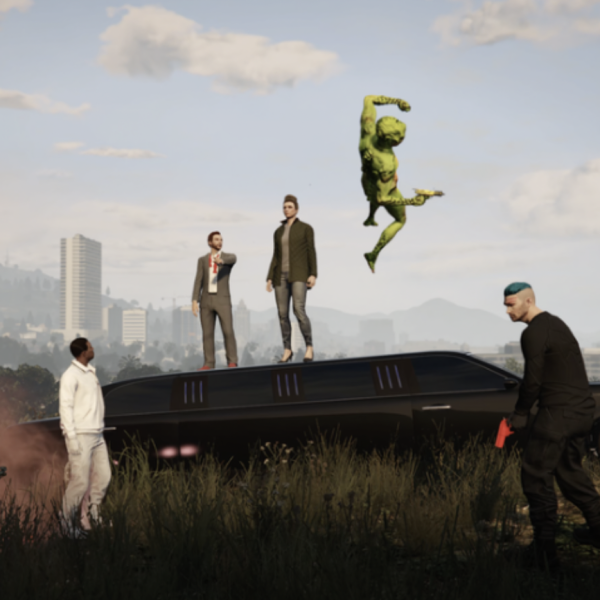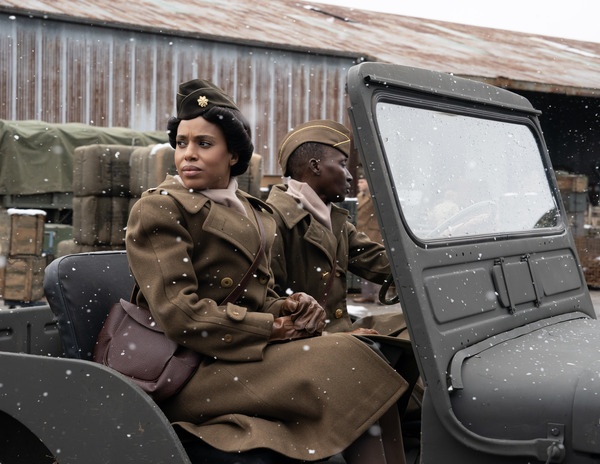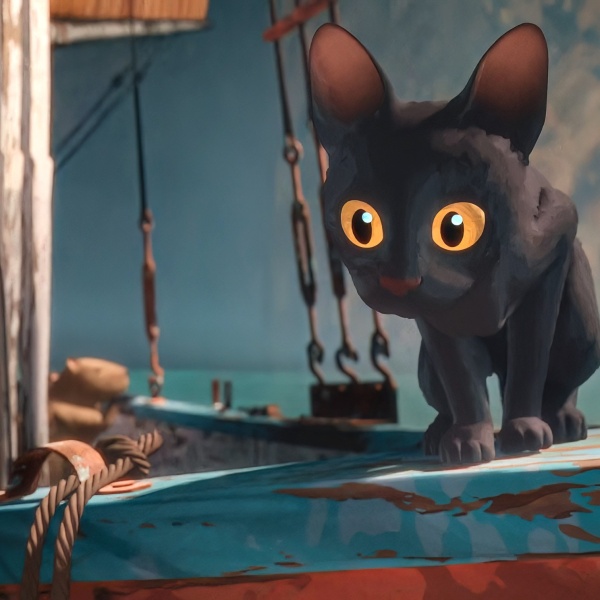Alison Bechdel came up with the comic strip premise for the Bechdel Test in 1985, identifying the lack of female representation in countless movies and TV shows in which two women don’t even speak to one another. The first use of the phrase “global warming” preceded that in 1975, but now in an unusual marriage, the two concepts are coming together to help entertainment address climate change.
Non-profit organization Good Energy is today launching what it’s calling a “Climate Reality Check,” introducing a study and its criteria for a Bechdel-type test assessing whether some recent releases acknowledge the existence of climate change in its text.
The test is intended as a guide for screenwriters and industry professionals to “interrogate their own stories” and see whether Hollywood is representing reality — the grim reality being climate change — on screen. And the organization is calling it a reality check because it believes that if a movie is set in the present day where climate change is a persistent and looming problem, it should at least acknowledge that reality and “reflect the world as it is.”
To pass this test, Good Energy says a story must demonstrate two things: “climate change exists” and “a character knows it.”
That doesn’t sound like that high a bar, but there’s some nuance in terms of what is being tracked. Researchers as part of the study were looking for the phrases “climate change,” “a changing climate,” “the climate crisis,” “global warming,” “a warming world,” “melting glaciers,” “rising seas,” or other phrases that can suggest at the effects of climate change on the planet. Seeing bad weather alone didn’t cut it, unless the character acknowledged that such storms or calamities are happening with greater frequency.
“When stories erase climate change, they seem increasingly out of touch with reality,” the study reads. “The more that stories include climate, the more authentic and relevant they are, allowing them to connect with audiences and their experience of being alive in the age of climate change.”
The second component, “a character knows it,” could be demonstrated through dialogue, a news report seen by the character, someone attending an event specifically geared toward taking action, or that the character is clearly identified in a professional role designed to address climate change. Even for stories that are post-apocalyptic in nature, the study says, awareness of climate change and its effects shouldn’t be assumed; it has to be demonstrated.
The study says 75 percent of young people between 16-25 across 10 diverse countries find the future frightening because of climate change, but only 37 percent talk about it regularly with family or friends. The organization believes having characters on screen address it can eliminate climate anxiety, hopelessness, and inaction. The report even suggests that the lack of climate discussion in film is a strategy of the fossil fuel industry to sow silence and skepticism.
“Audiences want on-screen stories that reflect themselves and their reality, but report that they aren’t seeing characters who share their level of concern about climate change,” the report says. “This component of the test directly addresses that gap. A character talking about climate change can help
model conversations about it in real life, and simple conversations about climate change can be remarkably influential. As climate scientist Dr. Katharine Hayhoe says, the most important thing a person can do to fight climate change is to talk about it.”

As part of the study, Good Energy along with researchers at Colby College’s Buck Lab for Climate and Environment looked at the 31 different Oscar-nominated films in 2024. Only 13 of them were contemporary stories set in the present or near future, not period dramas or science fiction fantasies, which were not analyzed. Of those 13, only three movies passed the test and addressed climate change in some form. Those films are “Barbie,” “Mission: Impossible — Dead Reckoning Part 1,” and “Nyad.”
In the case of “Barbie,” the teenaged Sasha dismantles Barbie’s view of reality by telling her “you’re killing the planet with your glorification of rampant consumerism,” a laugh line that still feels rooted in the real world. “Dead Reckoning’s” Kittridge warns Ethan Hunt about the “war for the last of our dwindling energy, drinkable water, breathable air.” And in “Nyad,” Jodie Foster’s Bonnie bluntly name checks global warming as the reason “the box jellyfish came up off the shallow reef when we left Cuba,” which later becomes a key plot point in Diane Nyad’s quest to make the swim from Cuba.
Good Energy back in 2022 released a playbook for screenwriters about how they can more seamlessly introduce such concepts into their writing. The organization believes that with this test, writers can be rigorous in assessing their stories.
“The Climate Reality Check does not suggest or require that every story center climate change, nor does it prescribe what kinds of stories filmmakers should tell. It simply measures whether our current climate reality is being reflected on-screen. How that is done, friends, is up to you,” the report reads.
“I’m thrilled to see that several of my favorite Oscar-nominated films from the last year passed the Climate Reality Check,” Good Energy founder and CEO Anna Jane Joyner said in a statement. “It’s a clear demonstration that acknowledging the climate crisis on-screen can be done in entertaining and artful ways that are authentic to the story. More proof that audiences crave seeing their own world and experience, which now universally includes the climate crisis, reflected on screen.”
“Humans are storytelling animals and climate change is the biggest story of our time. It affects every part of our lives and threatens everything we depend on and hold dear,” said Matthew Schneider-Mayerson, PhD, Associate Professor of English, Colby College. “Yet it has been absent from the stories we consume. The Climate Reality Check is a simple, illuminating, and powerful tool that can be used to evaluate any group of narratives — from films and TV shows to video games and novels — for their reflection of our climate reality. In this way, the Climate Reality Check provides a new and necessary perspective on storytelling in and for a world on fire.”
The Climate Reality Check was created by Anna Jane Joyner, Carmiel Banasky, Bruno Olmedo Quiroga, and Matthew Schneider-Mayerson.



